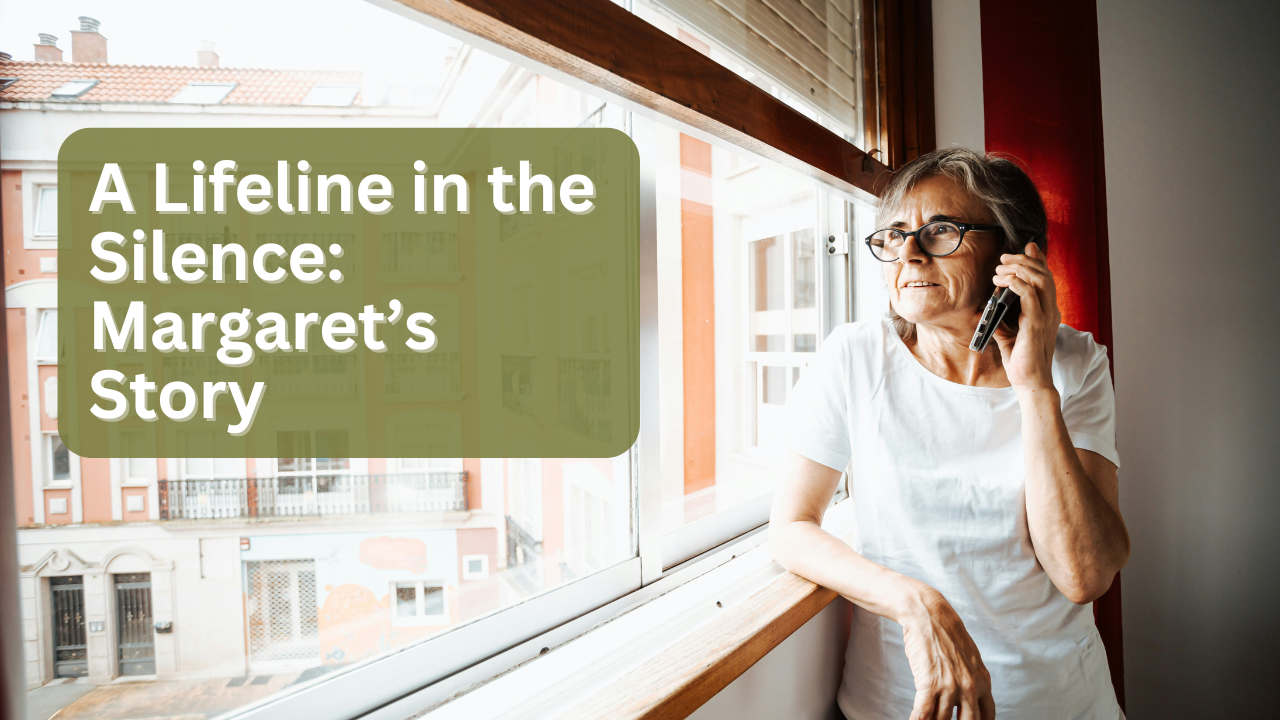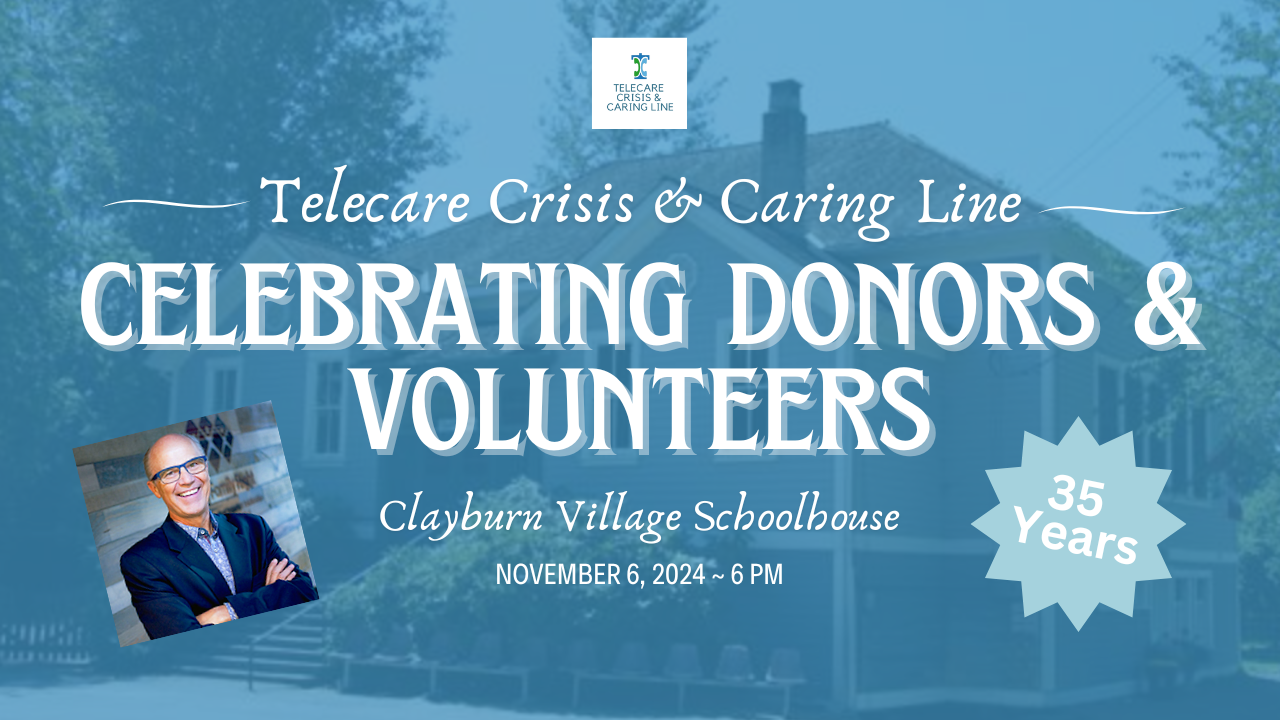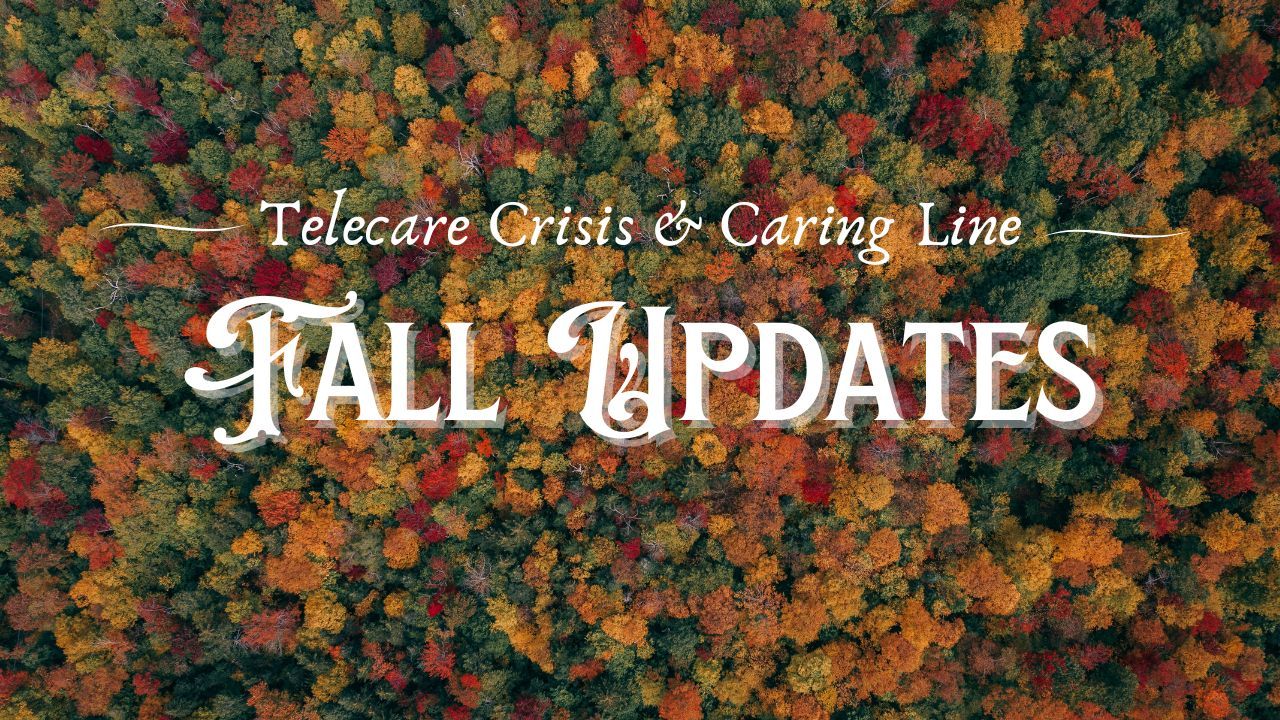PHONE FOR SUPPORT: 1-888-852-9099, 9 AM TO 9:00 PM, 7 DAYS A WEEK
LIVE CHAT: FRIDAYS AND SATURDAYS, 5 PM - 11 PM
Finding Ways to Cope
Finding Ways to Cope
By Bill Strom, Telecare Volunteer
Living in isolation and publicly at-a-distance effects our mental health. So as we enter the seventh month of pandemic living, a good question is “How are we doing?” And a second, “What can we do to cope?”
In my role as professor of communication at Trinity Western University, I get to ask questions that lead to research that provides practical insight for everyday life. In this time of pandemic living, I was curious about how people relate behind closed doors when forced to live in isolation, experience disruption, and possibly lose work and friendships. Does all that stress create relational angst?
I asked these questions and then embarked on a study back in late April (about week seven for the lockdown in British Columbia). Over 750 surveys came in from people aged 18 to 81, women and men, churched and unchurched, frontline workers and stay-at-home types.
What I found is that several ways of coping really helped, while others did not.
Resilience Starts before Stressors Hit Us
Even before the pandemic hit, some individuals were set up better to cope. Here is a brief list:
- In terms of personality, people who were able to ‘go with the flow’ and were ‘warm and agreeable in relationships’ tended to adapt better, especially in their relationships with others during lockdown. Makes sense!
- In terms of age, people who were middle-aged to mature seemed to have more resources for adjusting and adapting while young adults struggled more. Mature people were often empty nesters living with long-term spouses. We can see why they are stable. By contrast, younger people were displaced from school and university, forced to go home, and lived with siblings and parents ‘under foot’. So stressful! Many still do right now.
- In terms of gender, people who were most resilient were women who could rely on other women, and men who could figure out how to fix problems, tended to do better than women with unsupportive friends or men who lack problem-solving skills. Some women reported feeling anxious, untrusting, and lonely during the initial lockdown, and, unfortunately, they were cut off from girlfriends to gain support. With things opening up, women can meet again to give and gain support.
Covenant and Contract Relating
There was also the software of the mind and heart factor. In my study, I found that people who held covenant values were more resilient than those who held contract values. Covenant places a high value on the friendship or marriage, values long-term commitment, and aims to grow together to become better people. Contract tends to see one’s personal happiness and fairness as key to relating. Contract relating can lead to a ‘ledger’ approach where one keeps tracks of how much one invests, and then holds back if investments are outweighing benefits.
Despite what we brought into COVID-19, we can see now that getting along requires sacrifice and accommodation more than before.
Some Coping Strategies Work Better
In terms of things we can do, the wisdom I learned was we do have choice, and that our choices matter. I also learned that some strategies work better. The coping strategies that appeared to help people thrive were:
- Eating well as opposed to eating junk food. Taking time to fix quality food take effort, but the feelings around it are more positive than ordering McDonalds.
- Exercising outdoors often as opposed to staying indoors on the couch. By now many parks are open for walking and hiking. It’s worth getting outside.
- Playing or watching 1-3 hours of entertainment media per day as opposed to bingeing with five or more hours per day. A good hockey game or movie is a great way to unwind, but bingeing can take us away from people who are there to support us (and we them).
- Attending church (for those likely already attending) rather than cutting out church. If not church, it seems that connecting with any service group can help us get our eyes off ourselves and onto others who may need help.
Other Helpful Tips
Depending on your situation (as in where you work and with whom you live), other helpful tips include:
- Structuring your day with a plan. This helps with motivation and the ability to ‘tick things off’ your list.
- Connecting with others, but not just through social media. Social media is ‘thin’ while connecting face-to-face is easier and richer. We are more likely to get real and personal meeting live too. Doing so stimulates our minds and emotions best.
- Guarding against negative thoughts and feelings. It’s easy to feel down, angry, and even vengeful. If you do, try to label these negative emotions and ask why you have them. Aim to tackle negativity with positive responses. For what can we be thankful or optimistic? Spending more time with my grandson is one for me.
- Reaching out to professional or trained helpers. It takes a strong person to admit they are struggling. This is one reason Telecare exists, to be here to listen and help you process your pandemic experiences and feelings.
Most important is that we do not suffer in silence. All of us are going through a similar process, but how each of is doing varies greatly. While your friend may appear fine, who knows? He or she may be struggling as much as we are. When we reach out to each other, we admit we are human, and by reaching out, we can encourage one another.
Many of us know Dr. Bonnie Henry’s well-received mantra to “Be calm. Be kind. Be safe.” I agree. I also think, in light of what I learned through this study, that we should “Be authentic. Be supportive. Be resilient.”
Need Someone to Listen?
Remember, you're not alone on this journey. If you're seeking a compassionate ear and a heart that understands, we encourage you to call us. Support is just a phone call away. See below for information on how to connect with us.
Discover Hope in Every Email
Join our community for uplifting stories, expert advice, and a path to healing.
Get the support you need
For Crisis or Emotional Support Call:
- 604-852-9099 in Abbotsford and Mission
- 1-888-852-9099 toll free throughout British Columbia
- If you are in a life threatening crisis, please call 911
Recent Posts
> End your Anxiety: A Prayerful Approach
> Renew your Strength – God's Promise to You
> Bible Verses that Help When You're Afraid | Telecare












